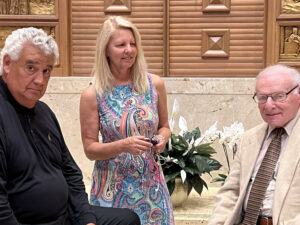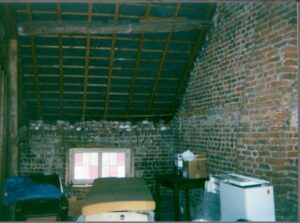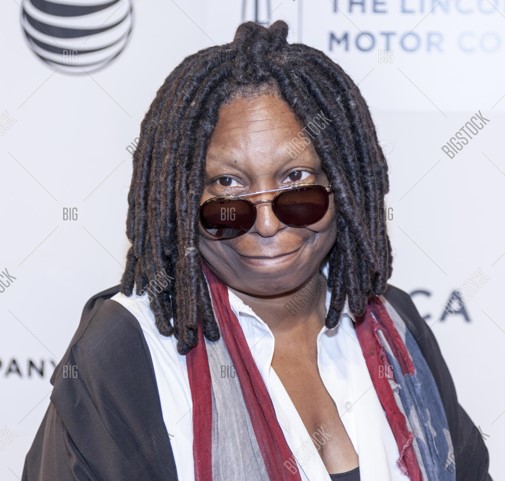Holocaust Survivor Tells Students: ‘I Do This Because You Dare Not Forget.’
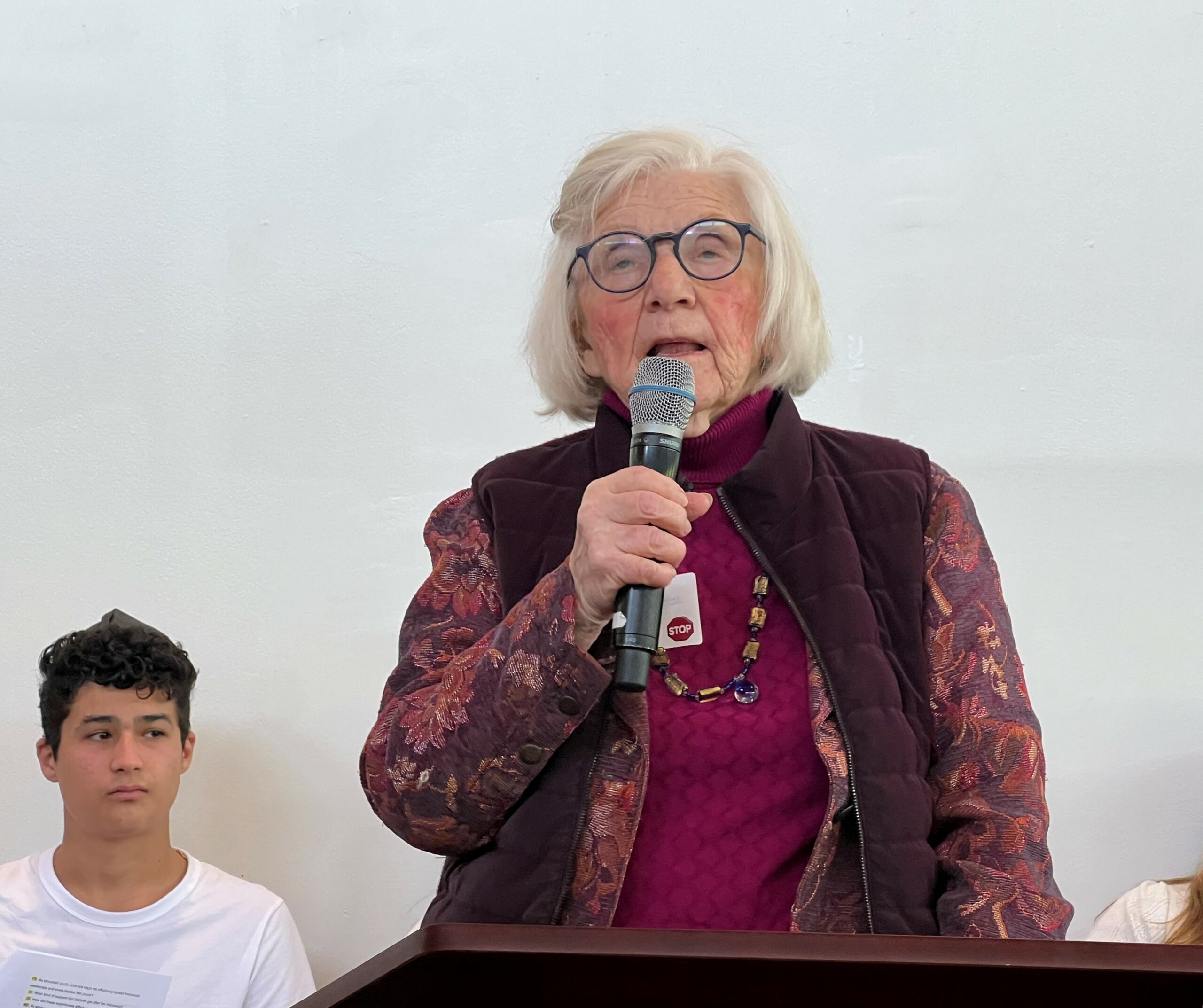
Six yahrzeit candles flickered as Holocaust survivor Rita B. Ross spoke about her experiences to Barrack Hebrew Academy students on Tuesday.
Student Jakob Oxman played a mournful song on his violin, setting the tone for the somber Yom HaShoah (Holocaust Remembrance Day) event, presented by the school’s Holocaust Education and Reflection Club. HEAR Club presidents Ellie LaVoe, Talia Willner, and Eden Singer introduced Ross, a Wynnewood resident.
Ross blocked out the details of her childhood experiences from her mind until she went to a specialist as an adult to ask about recovered memories. He told her to begin writing about her earliest memory, and she regained her repressed memories. Eventually, she wrote a book about surviving, “Journey to Happily Ever After.”
“I’m a survivor,” said Ross. “Not because of anything wonderful that I was able to do or my family was able to do.”
“I was two years old when Hitler annexed Austria. I was three years old when I felt the impact of the Nazis coming. My father made a good living in Austria. My mother was a happy hausfrau. My brother was 18 months younger than I was, and we were the only children.
“My earliest memory was my father coming home one day in Vienna, and he was in tears. He said he had just witnessed something on the streets of the beautiful city of Vienna. Some Hasidim (ultraorthodox Jews) were walking on the street when out of the doorway, a bunch of young hoodlums, teenagers, 16, 17, and 18 years old, jumped out of the doorway and grabbed the Hasidim, throwing them on the ground, pulled their beards out, kicked them, pulled the payos (side curls) out, stomped on them…And the Austrians were walking by, saying nothing. Like it didn’t concern them.”
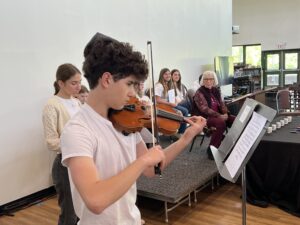
Jakob Oxman
Her father said, “‘We cannot stay in Austria any longer. As Jews, we’re in danger. Because today they got the Hasidim.’ That’s what my father said. ‘Tomorrow, they’re going to come and get us.’”
Her father had a visa for America squirreled away in a drawer. Her parents made the difficult decision that he should go to America, then try to bring over the rest of their family.
She asked how many would leave their family. Only a few raised their hands. When she asked if they would stay with their family and try to survive together, many more did.
Her mother took the two young children to her family in Poland, to a small town near Krakow where they owned a farm and tannery.
But eventually, the Nazis came to Poland, too, and the family knew they had to hide.
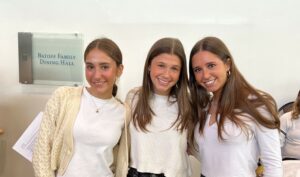
HEAR Club presidents (from left) Ellie LaVoe, Talia Willner, and Eden Singer
Her mother, who was blonde and blue-eyed and could pass as a gentile, took the children to stay with a couple in Krakow. But first, she told the children they were not Jewish but Catholic and put crosses around their necks. A few weeks later, the woman they were staying with became afraid because her neighbors gossiped and told them to leave. So then they were homeless, walking on the streets, trying to find places to keep warm as fall and winter set in. They slept in churches and a warehouse, she said.
“Being Jewish was like being a fugitive, like being a criminal on the run,” Ross said. “That’s how dangerous it was. And you were not allowed to hide Jews.”
Finally, they were so cold and hungry that they entered the ghetto. But that was a horrible place filled with lice, dysentery, pneumonia, and other diseases. A woman living in their room died, and her mother decided they had to leave the ghetto.
In America, her father had found an old family Bible in a used book store, wrote down a family tree in the front of it with her mother’s father’s name, and took it to a government clerk. He told the clerk that his father-in-law was born in Philadelphia in 1882 and needed a birth certificate, and the clerk gave him one, “no questions asked. It’s unlike today, where you must bring in three witnesses. They took him at his word.”
“In 1882, people didn’t necessarily get birth certificates. Your life was recorded in a Bible in a family tree,” Ross said. He had mailed that document to her mother while she was at her family’s home and told her to keep it with her.
Back on the Krakow streets, a Polish police officer noticed the family and questioned her mother. She showed him the false American birth certificate for her father. Ross said that he took them to the Nazis, and the Germans believed they were U.S. citizens who could not be killed under the Geneva Convention. So, they ended up in a prisoner-of-war camp in Germany.
The camp was full of other people and many children. A group of nuns who had been teaching in German schools was there, and they started a school that Ross attended.
When she was nine years old, the Germans exchanged her family for prisoners of war held in the U.S., and they joined her father in America. Ross not only survived, but she also married, had five children, and became a teacher. She often gives talks about her experiences.
Ross told the students that someday they would meet someone who denies that the Holocaust happened.
“I do this because you dare not forget,” she said. “You dare not.”
“I’m here to tell you to answer them, ‘Yes, it did.’ And you must never let this kind of thing happen again.”
At the close of the event, student Benny Scheinmann gave a moving recitation of the Kaddish (Jewish mourning prayer) for the six million Jews killed in the Holocaust, with the names of the concentration camps interjected into the prayer.
Please follow DVJournal on social media: Twitter@DVJournal or Facebook.com/DelawareValleyJournal


